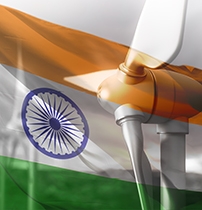>> Read paper published in Ecological Economics
Abstract
The Indian economy is facing a crisis at three different levels — health, economic and climate-change related. This ongoing crisis has given India an opportunity to change the course of development, a model where people, not profits, form the core. Based on the Indian economy’s employment-generating capacity, we propose an Indian Green Deal (IGD) that generates jobs and fundamentally alters the carbon footprint of the economy. The programme is divided into three components – care economy, infrastructure, and green energy transition – to address the triple crises, respectively. We show that for the same amount spent, 3.5 jobs will be generated in green energy programme compared to one job in the fossil fuel sector. If the amount promised under the Covid package of the Indian government is spent on IGD, it would generate 22.7 million jobs every year. It also provides disaggregated evidence on the quality of jobs as well as gender and caste representation. As for financing, there are two ways in which it can be financed — an international carbon fund and/or domestic sources. An IGD, financed through these sources, addresses both the questions of the climate crisis and climate injustice in one go.



